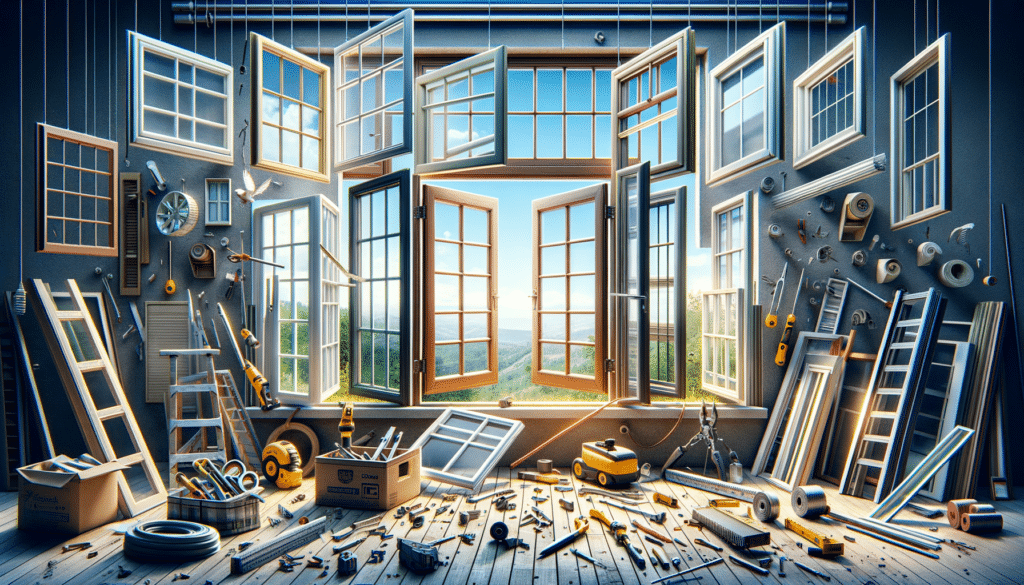Understanding the Need for Windows Replacement
Windows replacement is a crucial aspect of home maintenance that often goes overlooked until problems become apparent. The primary reasons for considering window replacement include improving energy efficiency, enhancing home security, and boosting aesthetic appeal. Old or damaged windows can lead to increased energy costs as they allow heat to escape during winter and let hot air in during summer. By upgrading to modern, energy-efficient windows, homeowners can significantly reduce their energy bills. Furthermore, new windows often come with advanced locking mechanisms and stronger glass, providing better security against break-ins. From an aesthetic standpoint, new windows can transform the look of a home, adding value and curb appeal.
Types of Windows for Replacement
When considering window replacement, it’s essential to understand the various types of windows available. Each type offers unique benefits and can be chosen based on the specific needs of the home. Some popular options include:
- Double-Hung Windows: These windows are versatile and easy to clean, making them a popular choice for many homeowners.
- Casement Windows: Known for their energy efficiency and excellent ventilation, casement windows are hinged at the side and open outward.
- Sliding Windows: Ideal for rooms with limited space, sliding windows offer a sleek and modern look.
- Bay and Bow Windows: These windows extend outward from the home, creating additional space and allowing more natural light to enter.
Understanding the benefits and features of each type can help homeowners make an informed decision that suits their style and functional needs.
The Process of Window Replacement
Replacing windows involves several steps, each crucial to ensuring a successful installation. The process begins with an assessment of the current windows to determine the extent of the replacement needed. Once the assessment is complete, homeowners can choose the type and style of windows they wish to install. The next step is measuring the window openings to ensure a perfect fit. Professional installers often handle this to avoid errors. The actual installation involves removing the old windows, preparing the openings, and installing the new windows. Proper sealing and insulation are vital to prevent air leaks and ensure energy efficiency. Finally, a thorough inspection ensures everything is correctly installed and functioning as expected.
Cost Considerations and Budgeting
One of the most significant factors in window replacement is the cost. The price can vary widely depending on the type of windows chosen, the number of windows being replaced, and the complexity of the installation. On average, homeowners can expect to spend between $300 to $1,000 per window, including installation. However, investing in high-quality, energy-efficient windows can lead to long-term savings on energy bills. It’s essential to budget for this project by considering both the immediate costs and the potential savings. Additionally, some regions offer tax credits or rebates for installing energy-efficient windows, which can help offset the initial investment.
Choosing the Right Window Replacement Professionals
Hiring the right professionals for window replacement is crucial to ensure a smooth and successful project. When selecting a contractor, homeowners should consider their experience, reputation, and customer reviews. It’s also advisable to obtain multiple quotes to compare prices and services. A reputable contractor will offer a detailed estimate, including labor, materials, and any additional costs. They should also provide a timeline for the project and be willing to answer any questions or concerns. Ensuring the contractor is licensed and insured is essential to protect against any potential liabilities. By taking the time to choose the right professionals, homeowners can ensure their window replacement project is completed to the highest standards.





